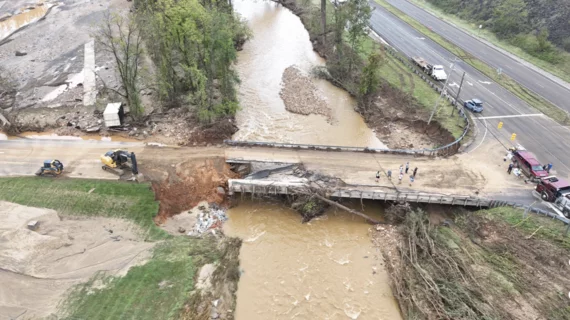Baxter reopens second production line at North Carolina IV solutions site
Two weeks after getting its first manufacturing line up and running, Baxter has restarted a second at its IV solutions plant in North Cove, North Carolina. The plant, which is located outside of Asheville, was heavily damaged by storm waters from Hurricane Helene back in September.
At the end of October, Baxter announced its highest capacity manufacturing line had been reopened, with the facility ahead of schedule on its path to recovery. Now, with two lines up and running, employees are returning to work and the site is producing at 50% of pre-Helene levels, Baxter said in a statement.
Roughly 2,500 people work at the plant, all of whom have been “accounted for following Hurricane Helene,” Baxter stated. The company added that it will continue to ramp up production in phases for the remainder of the year.
Currently, the plant is back up to 85% of production volume on 1-liter IV solutions, which are those most commonly used by hospitals. Baxter said it plans to reach 100% by the end of the year.
One of the primary challenges has been the facility’s isolation. Waters washed out the only road and bridge in and out of the plant, forcing supplies to be brought in by helicopter. For now, two temporary bridges have been erected that allow trucks to bring IV solutions to customers.
Loss of plant caused nationwide shortage
The North Cove site produces roughly 60% of the IV bags used in the U.S.. Baxter has been importing IV solutions from sites in Canada and overseas in an attempt to improve supplies. In an effort to help, the Biden Administration invoked the wartime powers provision of the Defense Production Act to boost domestic output.
The U.S. Food and Drug Administration (FDA) has listed nine IV fluids that are particularly short in supply, including dextrose, sodium chloride, sterile water, and dialysis fluids. As of time of writing, the FDA supply warnings have not been rescinded.

